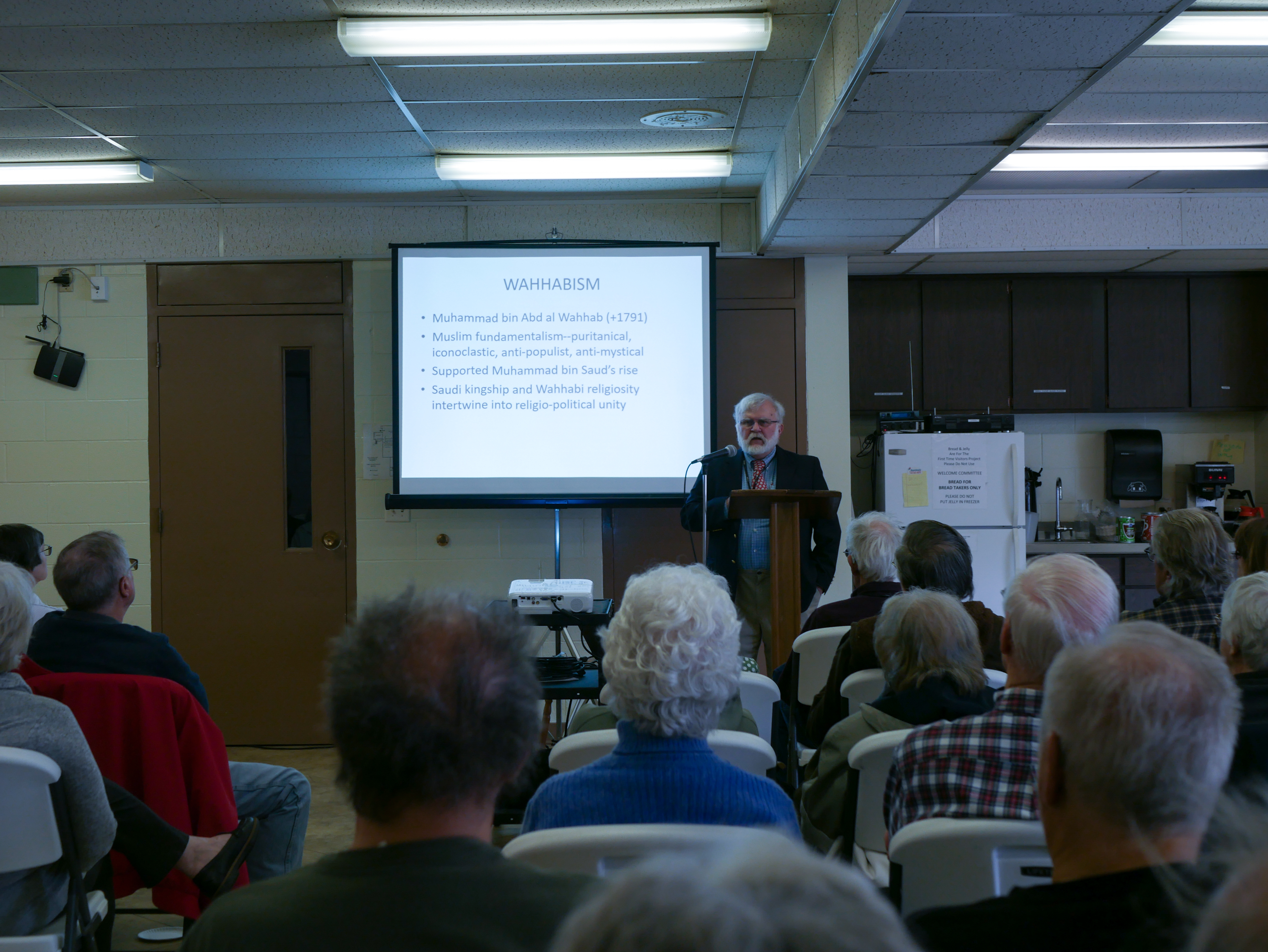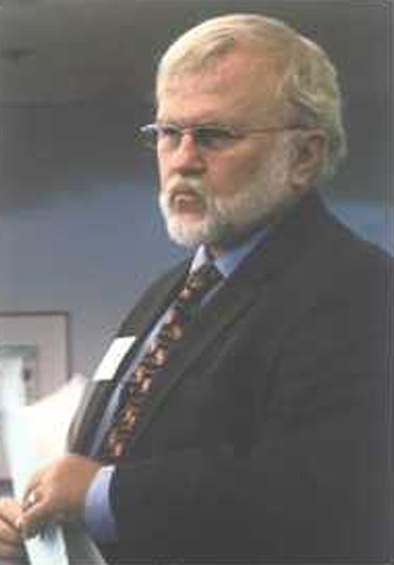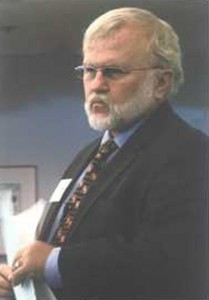Connor Severino
Transcript Correspondent
cmseveri@owu.edu
The area encompassing the Red Sea can be defined as a “puddle muddle” because of how the region’s economics and religion are intertwined.
That label was applied by Blake Michael, a Swan-Collins-Allen professor of religion at Ohio Wesleyan, who enlightened 77 Delaware residents about the geo-political disputes of the region Friday at the latest Great Decision lecture at Williams Street United Methodist Church.
The Red Sea is a part of the world not often acknowledged by Americans due to lack of involvement by the United States, Michael said.
Meanwhile, the region is responsible for nine percent of global trade and it is the second largest oil reserve in the world.
“My main point is (to see) the complexity of any geo-political situation, specifically an area such as the Red Sea that is complicated through elements I talked about, like for ethnicity and religion,” Michael said.
In terms of religious complexity, different cultural groups practice different forms of the Muslim faith. Those groups are settled in the countries that border the Red Sea, including Saudi Arabia, Yemen, Egypt, Sudan, Eritrea and Djibouti.
Economically, Japan, China, and countries from Europe depend on the Red Sea region for natural resources and materials. The most sought after resource is oil, which provides global economic stability, Michael said.
“It is an enlightening part of the world, but people are not aware of all that goes on politically,” he said.
Attendee and Delaware resident Wayne Moore said he enjoyed the presentation.
“It’s an area we don’t have much place in so it was fascinating to learn,” he said.
Another local resident, Roger Koch, said, “It added clarity to an obtuse part of the world.”



